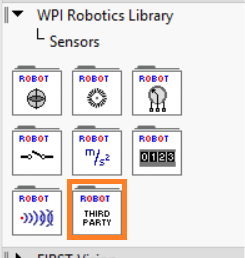

I won't pretend to understand the nature of the changes in allwpilib between v2017.3.1 and v2018.1.1, but they seem significant - v2017.3.1.v2018.1.1 The README for this repo says you can build simulation files with.
WPI SCREENSTEPS ARCHIVE INSTALL
WPI SCREENSTEPS ARCHIVE PLUS
I eventually got it working, but it was an involved and time consuming process.Īpologies if I'm way off base here (I'm making a lot of assumptions on why certain changed worked for me, plus there were a lot of moving pieces so maybe some changes I made seemed to help things but were coincidental), but this is what eventually worked for me. I was able to run everything against the simulation environment in ~December 2017, but when I tried again in the past couple weeks I encountered various issues. Thank I've been struggling with this too and encountered a number of issues trying to get steps which worked for me a month ago to work properly right now. WARNING|Gazebo Transport: Ignoring unsubscribe: topic: "/gazebo/frc/simulator/pwm/7" > The startCompetition() method (or methods called by it) should have handled the exception above. at .IterativeRobot.startCompetition(IterativeRobot.java:65) at $AppClassLoader.loadClass(Launcher.java:331) at 1(Native Method)Initialized simulator/dio/3/4 Below is a summary of the differences that will most likely effect robot programs created with : edu/wpi/first/wpilibj/command/TimedCommand There is a detailed list of the differences between C++ and Java on Wikipedia available here. Those with extensive programming experience can probably make their own choices, and beginning might do better with Java to take advantage of the ease of use. Java on the other hand has acceptable performance and includes extensive run-time checking of your program to make it much easier to debug and detect errors. The FPGA hardware also allows for interrupt processing to be dispatched at the task level, instead of as kernel interrupt handlers, reducing the complexity of many common real-time issues.įundamentally, C++ offers the highest performance possible for your robot programs. WPILib has a generalized set of features, such as general-purpose counters, to provide support for custom hardware and devices.
WPI SCREENSTEPS ARCHIVE SOFTWARE
The WPI Robotics Library is designed for maximum extensibility and software reuse with these languages. These languages were chosen because they represent a good level of abstraction for robot programs than previously used languages.



references, name case conventions, and some minor differences in functionality. There are some differences that reflect language differences such as pointers vs. There is considerable effort to keep the APIs for Java and C++ very similar with class names and method names being the same. This document specifically deals with the text-based languages, C++ and Java. There are three versions of the library, one for each supported language.


 0 kommentar(er)
0 kommentar(er)
